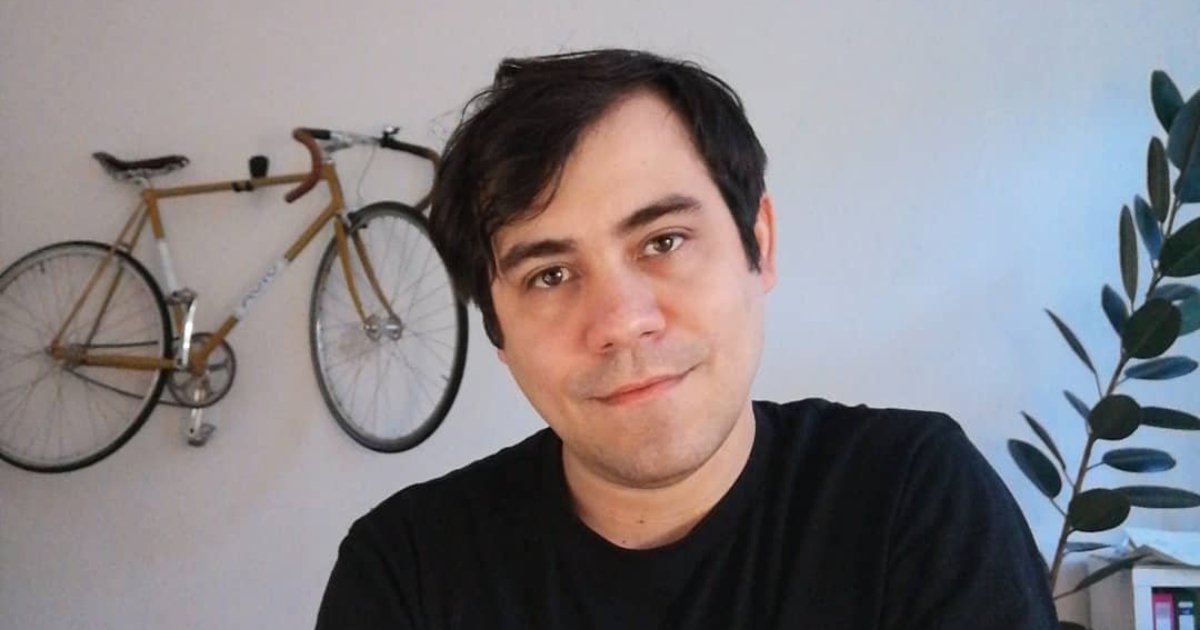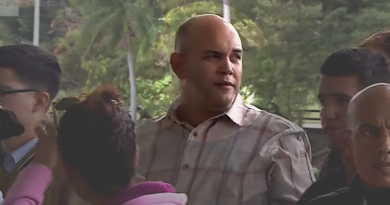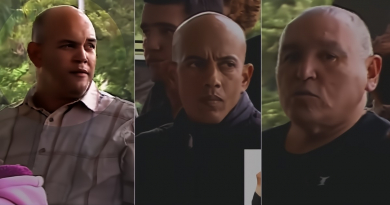
Hamlet Lavastida Cordoví is a Cuban artist and activist born in Havana, Cuba in 1983. He trained at the San Alejandro Academy of Arts and the Higher Institute of Art.
Lavastida belongs to a generation of Cuban artists whose work is censored on the island for transgressing the norms set by official cultural institutions. His political and social art draws from revolutionary iconography, ambiguous discourse filled with euphemisms, historiographic reconstruction, repressive techniques, the failed economic or social policies promoted by the Communist Party of Cuba, and everything that allows him to dismantle and disrupt the Cuban totalitarian regime.
He has a long trajectory and a consolidated body of work that is especially recognized abroad, where he has participated in several artist residencies: Trinidad and Tobago (2006), Warsaw, Poland (2012), Colombia (2018), and Germany (2020).
Her work has been exhibited at the Łaźnia Contemporary Art Centre in Gdańsk, Poland; at Links Hall in Chicago, United States; at The 8th Floor in New York, USA; at the Wifredo Lam Center in Havana; at the Pontevedra Museum in Galicia, Spain; in Rio de Janeiro, Brazil; and at the Nippon International Performance Art Festival in Tokyo, Japan, among other venues.
In 2018, he participated in Animas, with Carlos Garaicoa, in Madrid, Spain, and also in the Bienal 00, in San Isidro and Damas, in Havana.
In 2015, he brought his exhibition "Iconocracy: Image of Power and Power of Images in Contemporary Cuban Photography" to the Atlantic Center of Modern Art in Las Palmas de Gran Canaria and the Basque Museum-Center of Contemporary Art in Vitoria-Gasteiz, Spain.
In 2020, he inaugurated the exhibition "Prophylactic Culture" in Berlin at the Künstlerhaus Bethanien gallery. There, where the young creator had an art residency, he was taken aback by the events of November 27, 2020.
On February 8, 2021, during his segment on the Cuban television news, the host Humberto López showed and read a chat from Lavastida in which he proposed to mark the highest denomination banknotes circulating on the island with symbolic stamps representing the San Isidro Movement (MSI) and 27N. Later on, Hamlet himself declared that it was a completely private Telegram chat where he suggested marking the banknotes as an act of civil disobedience, but this idea was never discussed and was ultimately discarded.
For this reason, and under the charge of "incitement to commit a crime," Lavastida was detained on June 26, 2021, while he was undergoing a health quarantine after returning to Havana from Germany four days earlier. The statement issued by the Ministry of the Interior days after his arrest adds to the previous accusations the crimes of having incited and repeatedly called for "acts of civil disobedience in public spaces," through the use of social media and "the direct influence over other counter-revolutionary elements." It also points to "the execution of actions similar to those that have occurred in Eastern European countries, with a provocative intent."
The artist was transferred to Villa Marista, the headquarters of the State Security Department, an institution known for having a prison specialized in the detention of political prisoners. There, he was stripped of his name and assigned the number 2239. He was subjected to long and distressing interrogations. Lavastida acknowledges that he experienced hallucinations during the three months he stayed there, and after requesting psychological help, he was allowed only one meeting with a specialist. He also noted that he managed to make a phone call after asking for it seven times and that during that entire period, he was taken out to sunbathe only four times.
On July 20, 2021, a photo was published of Lavastida's son living in Poland, in which he was requesting his father's release with a message. The photo went viral and led various campaigns demanding the release of the artist who had committed no crime and who was never afforded the right to an attorney.
On September 25, he was released from prison and forced to leave Cuba along with his partner, the poet and activist Katherine Bisquet. After the efforts of Polish diplomats in Havana, the couple arrived in Warsaw on September 27, 2021.
After their arrival in Poland, Bisquet explained that both were imposed exile as a condition for Hamlet's release. The activist posted a heartbreaking text on her social media on September 26 detailing what they experienced during those 90 days of imprisonment and how the process of leaving the country unfolded. She recounts that Lavastida was taken to the airport from a protocol house where he had been isolated since September 20, and whose location she does not know, as he arrived from Villa Marista with his head between his legs. Bisquet herself, in her text, has explained that the process through which both were released and exiled was referred to by more than one agent as "political rationality."
In the release of Hamlet, the activist and artist Tania Bruguera was also involved, as the State Security proposed to arrange a plane ticket for her to leave the island. In exchange, Bruguera provided a list of several people who should be released. Lavastida was on the list. Although the government did not agree to release everyone, the activist left the country at the same time as Hamlet and Bisquet.

